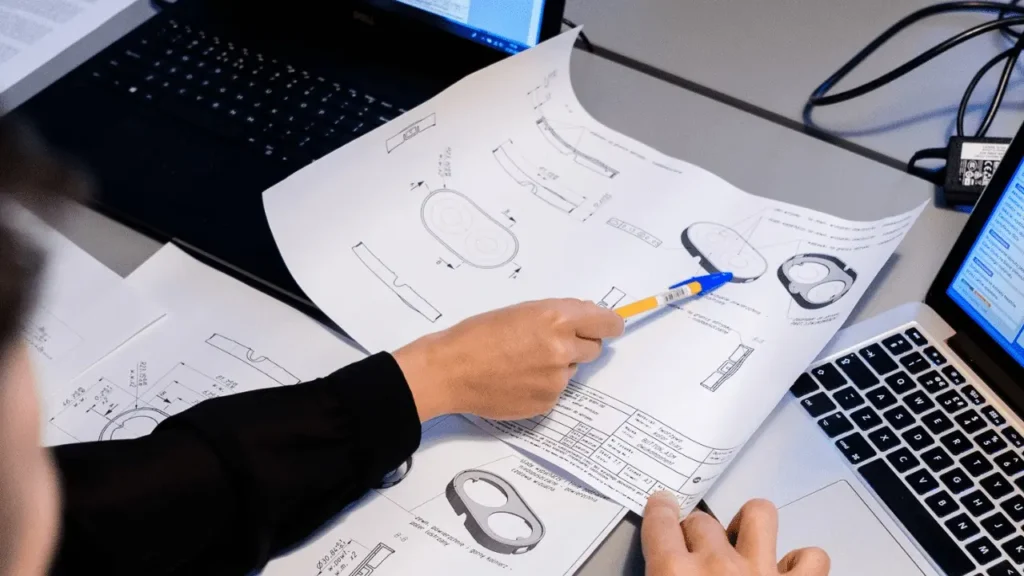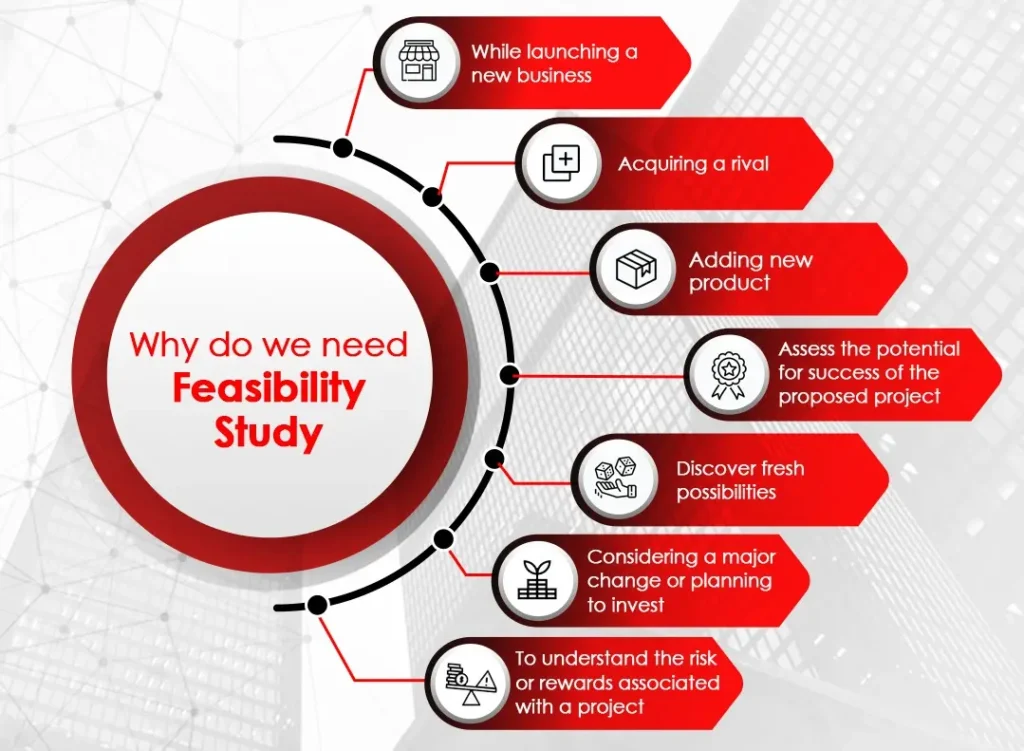Choosing the right feasibility study consultant can be a game-changer for your business or investment project. These professionals help determine if your idea is practical, profitable, and worth pursuing. In the U.S., some of the trusted firms has its own strengths. Some specialize in real estate, others in startups, healthcare, or infrastructure. OGScapital stands out for its wide experience and track record of over 2,000 completed studies and $1.1 billion in funding raised. Whether you’re launching a new hotel or expanding a tech startup, these consultants can provide a complete feasibility analysis to guide your next move.
What Is a Feasibility Study and Why It Matters

A feasibility study helps you decide if a business idea or project is worth doing. Whether you’re planning a self‑storage facility, a hotel, a gas station, or a new startup, this report looks at market feasibility, financial feasibility, and risks. A good feasibility study includes a problem statement, project objectives, alternative solutions, and a full cost-benefit analysis. If you’re thinking about working with a feasibility study consultant, you’ll get a clear, executive summary, report, and implementation schedule so you can make smart decisions.
A study also covers resource requirements, timeline, risk assessment, and financial modeling. It’s a smart way to show investor requirements and support funding applications.
How to Choose the Right Feasibility Study Consultant

To get reliable help, look for a consultant who:
- Specializes in your industry – Do they have experience in real estate, tech startups, retail, healthcare, or infrastructure?
- Has real results – Check client reviews, case studies, and success stats like 85% success rate, 2,000 studies, and $1.1 billion raised.
- Uses the right methods – They should offer in-depth market research, include SWOT analysis, competitive analysis, and provide an implementation roadmap.
- Offers a clear scope – Make sure your study includes financial feasibility, SWOT analysis, funding strategy, regulatory requirements, and risk assessment.
Top 10 Feasibility Study Consultants in the USA

Here are ten trusted firms:
- OGScapital – Offers fast delivery, customized solutions, and services by MBA experts.
- Plante Moran – Known for complex, industry-specific financial modeling and analysis.
- The Fox Group – Focuses on healthcare feasibility and operational guidance.
- IMS Consulting – Experts in manufacturing and supply chain projects.
- The Startup Garage – Great for early-stage startup validation and business planning.
- RMA Consulting – Provides detailed projections, ROI, and funding strategy.
- Camoin Associates – Strong in community developments and nonprofit funding.
- PMA Consultants – Skilled in construction, infrastructure, and site planning.
- Smith & Company – Helps with nonprofit programs, governmental policy, and grants.
- Ernst & Young (EY) – Offers global reach, local customization, and fractional CFO services.
Industries That Commonly Require Feasibility Studies

Many industries rely on feasibility studies to avoid failure and make smarter choices. Real estate and construction developers often use them to analyze local demand, zoning regulations, costs, and future income potential. Healthcare businesses rely on them to ensure facilities meet health standards and regulations while also being financially sustainable. Tech startups use feasibility studies to attract investors and evaluate if their product fits the market. Franchises and retail businesses need them to understand customer demand, traffic patterns, and competition. Projects like gas stations, RV parks, and self-storage units also require in-depth analysis to determine if they are suitable for a specific area based on factors like population growth, average daily rates, and amenities planning.
Real Estate and Construction
These need help with market demand, site selection, project budget, unit mix, occupancy projections, and average daily rates. In California, costs for market studies range from $6,000 to $15,000.
Healthcare and Life Sciences
Requires regulatory requirements, operational considerations, and building strong facility and compliance plans.
Tech Startups and SaaS
Needs business valuation, funding requirements, market demand checks, investor-ready pitch decks, and financial models for scalable growth.
Food, Retail, and Franchises
Important to understand customer demand, traffic patterns, site selection, and do strong competitive analysis.
Common Mistakes to Avoid When Hiring a Consultant

Hiring a consultant without checking their background is one of the most common and costly mistakes. Some businesses go with the cheapest option and end up with copy-paste reports that offer no real value. Others forget to check if the consultant has relevant industry experience or a proven track record. It’s also risky to hire someone who doesn’t provide real case studies or testimonials. Focusing only on price rather than the quality of work is another trap. A good consultant offers value through research, planning, and expert guidance — not just low prices. It’s better to pay more for a quality report that can help you secure funding or avoid a failed investment than to save money on a poor one.
Ignoring Credentials and Case Studies
Don’t skip their background. Ask about their number of studies, success rate, and funding raised.
Focusing Solely on Price Over Value
Cheap services often rely on generic templates and miss critical parts like risk assessment, SWOT, or final reports. Aim for document customization, full analysis, and unlimited revisions.
Cost of Hiring a Feasibility Study Consultant in the USA
The cost of hiring a feasibility study consultant in the USA varies depending on the size of the project, the industry, and the complexity involved. For smaller business ideas, you might pay between $5,000 to $25,000. For mid-size projects like real estate developments or franchise launches, the cost can range from $30,000 to $100,000. Large infrastructure or government projects can cost even more, sometimes exceeding $100,000. The pricing can be fixed, hourly, or based on project phases.
Some consultants offer flexible payment models like milestone-based payments or a package deal that includes multiple services like market research, financial modeling, and document formatting. Always ask for a detailed scope of work to understand what is included in the price. Hiring a feasibility study consultant can help you avoid costly mistakes and ensure your business idea is backed by solid research. With expert guidance, you get a clear roadmap tailored to your industry and goals.
Factors That Influence Pricing
Costs vary based on:
- Project complexity and size
- Industry type
- Depth of analysis and urgency (e.g., rush delivery)
- Hourly vs fixed-price billing
What’s Included in the Scope of Work
Expect:
- Market and competitive research
- Financial models and funding strategy
- Cost-benefit analysis, risk assessment, SWOT
- PDF report, possibly with printed copies and graphic design
- Unlimited revisions and senior project lead involvement
Benefits of Working with U.S.-Based Consultants
Hiring a U.S.-based consultant has many advantages, especially for projects located in the United States. First, they understand the local market, including real estate trends, regulatory requirements, and population data. They can provide region-specific insights that foreign firms might miss. Second, they are more familiar with U.S. laws, compliance standards, and permits, making your study more reliable and legally sound. Third, working with someone in the same time zone allows for easier communication, faster feedback, and better collaboration. U.S. consultants also tend to be more accessible for in-person meetings or site visits when needed, which adds value to your project planning.
Local Market Knowledge
They understand local growth trends, regulations, zoning, and licensing. They know population growth, tourism, and regional data.
Compliance with U.S. Regulations
They include legal checks, environmental review, and alignment with regulatory requirements.
Ease of Communication and Collaboration
Same time zones, direct client consultation, and clear billing terms help projects run smoothly.
How to Get Started with a Feasibility Consultant Today
Starting with a feasibility consultant is easier than most people think. The first step is to prepare a clear project brief. This should include your main business idea, your goals, your budget, and your expected timeline. After that, schedule a consultation. During this meeting, the consultant will ask questions to better understand your needs. It’s important to ask them questions too — like how long the process will take, what methods they use, and what’s included in the final report. Once you’re ready to move forward, the consultant will send you a proposal and timeline. From there, the actual research and writing phase begins.
Preparing Your Initial Brief
Include:
- Your project’s problem statement and objectives
- Basic budget, timeline, and purpose (loan, investor, or internal decision)
- Brief on industry and idea
Questions to Ask During the First Consultation
Ask about:
- Their process and data sources
- Who leads your project
- How long the study takes
- Options for unlimited revisions
When Should You Hire a Feasibility Consultant?
It’s best to hire a feasibility consultant before you invest too much money or approach banks or investors. A solid feasibility report can help you build a convincing pitch deck and business plan that meets the expectations of funding providers. If you’re thinking about expanding into a new market or launching a new product, a consultant can help you understand market demand, competition, and risks. You should also consider hiring one once you have a rough business idea but aren’t sure how to move forward. A good consultant will turn that idea into a well-planned, realistic project with clear steps and potential outcomes.
Before Seeking Investors or Loans
A structured feasibility study shows you understand your market and funding requirements and helps meet investor and bank standards.
When Expanding to a New Market or Region
A new location needs a fresh market feasibility, competitive analysis, and site-specific research.
After a Rough Business Concept Is Defined
Once you have a basic idea, a consultant can help with operational considerations, alternative solutions, and refining your pitch.
What to Expect in a Feasibility Study Timeline
A typical feasibility study timeline depends on how big and complex your project is. Small business studies usually take 2–3 weeks. Medium-sized studies, like for a franchise or real estate development, might take 4–6 weeks. Large projects with multiple locations or special regulations can take up to 2–3 months. The process includes an initial consultation, data gathering, research, report drafting, and final delivery. Many consultants offer updates during the process and allow for revisions. The final report is often delivered as a professionally designed PDF, and in some cases, printed copies are provided. Always confirm delivery format and timeline upfront to avoid surprises.
Typical Duration Based on Project Size
- Small: 2–3 weeks
- Medium: 4–6 weeks
- Large/infrastructure: 2–3 months
OGScapital typically finishes in 20–24 days.
Key Milestones and Deliverables
- Kickoff meeting
- Data collection and site visits
- Draft report
- Feedback and unlimited revisions
- Final PDF report, with graphic design and optional print version
Real-Life Case Studies from U.S. Feasibility Experts
Real examples show how useful a good feasibility study can be. One tech startup hired a consultant to prepare a market and financial analysis before approaching investors. The report helped them raise $2 million and grow quickly because it highlighted strong demand and offered realistic financial projections. In another case, a property developer wanted to turn an old retail space into a mixed-use building. The feasibility study pointed out zoning challenges and local market oversupply. By changing their plan early, the developer avoided costly delays and adjusted their strategy to include units that were actually in demand. These success stories show how proper planning saves money and improves results.
Startup Launch Turned Profitable Venture
A SaaS startup used a full market and financial feasibility analysis. They got a $2 million investment and hit revenue goals faster than expected.
Redevelopment Project That Avoided Costly Pitfalls
A real estate project avoided costly permit delays thanks to early risk assessment and detailed site check. That saved thousands in construction delays.
Conclusion
A well-done feasibility study is one of the smartest tools you can use when planning a business or investment. From startups and real estate to healthcare and retail, every industry can benefit from the insights, financial clarity, and planning that a consultant brings. Hiring a U.S.-based consultant makes it easier to follow local rules, meet with your advisor, and get personalized support. Avoid common mistakes like choosing the cheapest option or ignoring the consultant’s track record. Know the costs, understand the timeline, and ask smart questions before starting. A good feasibility study doesn’t just tell you “yes” or “no” — it shows you how to build a path to success.
Also Read-Selecting the Right Tech Stack for Mobile App Success










